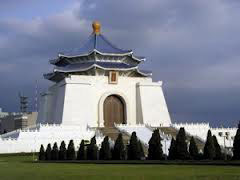



Taipeieco.it - The Economic Division of Taipei Representative Office in Italy
News
Maintaining semiconductor edge key to future development: Industry leader
11/02/2022
Taipei, Nov. 2 (CNA) The competitive advantage of Taiwan's semiconductor
industry is based on a number of conditions created locally and the key to the
industry's future development hinges on how to maintain its competitiveness
rather than reducing reliance on the country by moving operations overseas, an
industry leader said Wednesday.
Taiwan's global dominance of semiconductor fabrication is built mainly on the back of high caliber engineers, relatively low costs and the extremely high cost-performance ratio of domestic industry, Powerchip Semiconductor Manufacturing Corp. Chairman Frank Huang (黃崇仁) said.
These factors enable chipmakers to push prices lower than their counterparts in the United States and other countries, he noted.
In such a situation, Taiwan Semiconductor Manufacturing Co. (TSMC) is highly profitable and can continue to invest heavily in advanced processes thereby remaining the industry leader, Huang added.
Many conditions have allowed Taiwan's semiconductor industry to maintain its edge, including professional engineers, the internationalization of the industry, and government support for the building of new fabs, according to Huang.
Without these conditions that advantage does not exist, even if semiconductor manufacturing companies move their operations overseas or build new plants in the United States, he said.
Huang's comments came as the international community has begun to discuss the need for the semiconductor industry to reduce its reliance on Taiwan to minimize risks to the global economy amid geopolitical tensions and a major chip shortage.
Referencing this discussion of "de-Taiwanization" in the semiconductor industry, Huang said the key to the sector's future development is how to maintain its competitiveness. For instance, by continuing to cultivate top engineers through semiconductor technology and research institutions.
The government needs to keep providing resources including land, energy, water and tax incentive to support the industry's development, he added.
TSMC's announcement Tuesday that it will hold the first tool-in ceremony for its fab in the U.S. state of Arizona in December, to install the first batch of production equipment at the plant, has attracted widespread attention.
The U.S. semiconductor industry is the global leader in IC design and semiconductor manufacturing equipment, while Taiwan holds a leading position in the wafer manufacturing process, Huang said, adding that Taiwan's competitive advantage cannot be easily replicated.
Successful semiconductor investment is not just about money, Huang said, noting that TSMC has 30 years of experience in industry development.
Taiwan has built up its strength in the field and in the future will be able to export its semiconductor technology, according to Huang.
Regarding U.S. efforts to jointly develop the industry with Japan, Huang said they still need Taiwan, citing the example of a joint venture between Japan's Sony, Denso and TSMC to build a fab in Kumamoto.
National Development Council head Kung Ming-hsin (龔明鑫) said at a legislative session earlier this week that removing Taiwan from the semiconductor supply chain is not that easy given the country's strength in advanced semiconductor technology research and development and its enormous investment in the sector.
The most important thing Taiwan can do is to continue working to strengthen its semiconductor supply chain resilience, he added.
(By Chung Jung-feng and Evelyn Kao)
Link, https://focustaiwan.tw/business/202211020030
Ufficio di Rappresentanza di Taipei - Viale Liegi n.17, 00198 Roma | Tel. 06-98262800 - P. Iva 97076980586